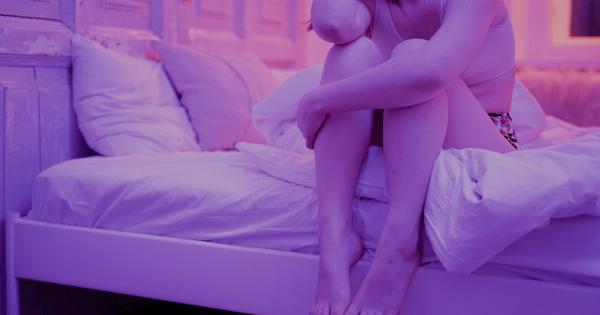Insomnia is a common sleep disorder that affects millions of people worldwide. It can make it difficult to fall asleep, stay asleep, or experience restful sleep.
While most people are aware of common triggers such as stress, anxiety, and caffeine, there are several lesser-known factors that may be contributing to your sleepless nights. In this article, we will explore 12 uncommon triggers of insomnia that you might be overlooking.
1. Electronic Devices
The blue light emitted by electronic devices such as smartphones, tablets, and computers can interfere with your body’s natural sleep-wake cycle.
Exposure to this light in the evening can suppress the production of melatonin, a hormone that helps regulate sleep. Turn off electronic devices at least an hour before bedtime to promote better sleep.
2. Medications
Certain medications can disrupt your sleep patterns and cause insomnia. Stimulant medications, antidepressants, steroids, and some over-the-counter cold and allergy medications can interfere with your ability to fall asleep or stay asleep.
If you suspect that your medication is causing insomnia, consult your healthcare provider for alternative options.
3. Bedroom Environment
The quality of your sleep environment can greatly impact your ability to sleep soundly. Factors such as noise, temperature, and lighting can all contribute to insomnia.
Make sure your bedroom is cool, quiet, and dark to create an optimal sleep environment.
4. Hormonal Imbalances
Hormonal imbalances, such as those associated with menopause or thyroid disorders, can disrupt sleep patterns and lead to insomnia. Fluctuating hormone levels can cause night sweats, hot flashes, and general discomfort that make it difficult to sleep.
If you suspect a hormonal imbalance, consult your healthcare provider for appropriate treatment.
5. Evening Exercise
While exercise during the day can promote better sleep, engaging in intense physical activity close to bedtime can have the opposite effect.
Exercise stimulates the body, raises its core temperature, and releases endorphins that can interfere with sleep. Try to complete your workout several hours before bedtime to allow your body ample time to wind down.
6. Irregular Sleep Schedule
A consistent sleep schedule is crucial for maintaining healthy sleep habits. Going to bed and waking up at different times each day can disrupt your body’s internal clock and lead to insomnia.
Establish a regular sleep-wake routine that allows for sufficient sleep time and stick to it, even on weekends.
7. Noise Pollution
Noise pollution, such as traffic sounds, barking dogs, or loud neighbors, can significantly impact your ability to fall asleep and stay asleep.
Use earplugs or white noise machines to block out disruptive sounds and create a more peaceful sleep environment.
8. Napping
While short daytime naps can be beneficial for some individuals, excessive or late-day napping can interfere with your ability to sleep at night.
Limit daytime naps to 20-30 minutes and avoid napping in the late afternoon or evening to prevent insomnia.
9. Allergies
Allergies can cause nasal congestion, itchiness, and discomfort that make it difficult to sleep. Common allergens such as dust mites, pollen, and pet dander can trigger insomnia in susceptible individuals.
Take steps to minimize allergens in your bedroom, such as using hypoallergenic bedding and regularly cleaning your space.
10. Caffeine Sensitivity
While most people are aware that consuming caffeinated beverages close to bedtime can interfere with sleep, some individuals are more sensitive to caffeine than others.
Even consuming caffeine earlier in the day can disrupt sleep for those who are particularly sensitive. Consider reducing or eliminating caffeine intake to promote better sleep.
11. Psychological Factors
Psychological conditions such as depression, anxiety, and post-traumatic stress disorder (PTSD) can contribute to insomnia.
These conditions can cause racing thoughts, heightened arousal, and increased stress levels that make it difficult to fall asleep. Seek professional help if you suspect psychological factors are impacting your sleep.
12. Digestive Issues
Chronic digestive issues, such as acid reflux or irritable bowel syndrome (IBS), can disrupt sleep patterns and lead to insomnia. Discomfort, pain, or frequent trips to the bathroom can interrupt sleep and prevent you from getting enough rest.
Consult a healthcare professional for proper management of digestive issues.
Conclusion
While stress and anxiety are well-known triggers of insomnia, it is important to be aware of the lesser-known factors that may contribute to this sleep disorder.
By addressing these uncommon triggers such as electronic devices, medications, bedroom environment, hormonal imbalances, evening exercise, irregular sleep schedules, noise pollution, napping, allergies, caffeine sensitivity, psychological factors, and digestive issues, you can improve your sleep quality and overall well-being. Remember, a good night’s sleep is essential for optimal health and functioning.































